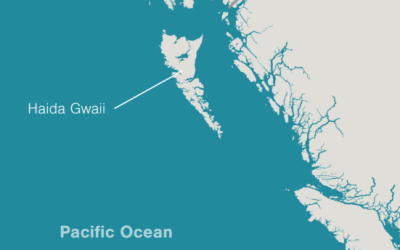SOUTHERN ALBERTA: A new international study reveals though Canada ranks high when it comes to property rights protection, Alberta’s record may not match national numbers.
The 2011 International Property Rights Index released this week is the fifth annual study that investigates how well countries protect property rights. Out of 129 countries, Canada ranks ninth in the world, just below Australia. Finland and Sweden are first and second, respectively, while the United States is nineteenth.
A Lethbridge researcher who contributed to the study says despite Canada’s high ranking, much more needs to be done to improve property rights protection in this country, particularly in Alberta. Joseph Quesnel completed a case study he says underlines the index’s overall message that strong property rights protection is directly related to a strong economy. He says that message should have some impact on proposed changes to property rights legislation in this province. Offering the example of Bill 50, a piece of legislation he says will give property owners less power, Quesnel has a warning for the government.
"As the Alberta government considers looking at the land use framework legislation, a lot of that legislation impacts on property rights for ranchers, for famers and individual land owners and investors," says Quesnel. "The Alberta government should really keep in mind that as property rights go, so goes the economy."
The President of the Institute for Liberty and Democracy, Hernando de Soto, agrees.
"With each new year, the link between economic prosperity and property rights protection becomes increasingly clearer," writes de Soto in his introduction to the index. "The 2011 IPRI once again emphasizes the evident connection between countries with the greatest economic strength and countries with the strongest protection of property rights."
Study shows First Nations will also benefit economically from stronger land rights
Quesnel’s findings stem from his research with the Nisga’a, an aboriginal community in northern B.C. In October 2009, this group passed legislation to develop a new land title system that will give individuals new rights to lands.
"It’s the first time an indigenous government has gone this far in terms of granting rights to land that can be transferred or sold or bought to anyone, whether aboriginal or not," says Quesnel.
Typically, aboriginal communities don’t have such land rights because they’re bound by historic treaties. The 1876 Indian Act gives federal and provincial governments title in trust to reserve lands. According to Quesnel, that system devalues the land, as it "can’t be leveraged in the wider economy."
Now the Nisga’a are creating a new take on the old system, and their actions are catching the eye of other native communities.
"It’s already created inspiration among First Nations all over Canada," says Quesnel. "There’s actually a movement to start a First Nation property ownership act that would take the title to their lands away from the Crown [federal and provincial governments] and transfer it to the First Nation community. It would allow them to take a step into the modern economy that they don’t have now."


